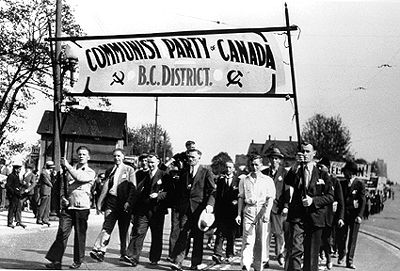Article
Canadian Council of Churches
Canadian Council of Churches The Canadian Council of Churches, founded 1944, is the national ecumenical fellowship of Canadian churches: Anglican, Armenian Orthodox, Baptist, British Methodist Episcopal, Canadian Conference of Catholic Bishops, Christian Church (Disciples of Christ), Christian Reformed Churches in Canada, Coptic Orthodox, Ethiopian Orthodox, Evangelical Lutheran Church in Canada, Greek Orthodox, Orthodox Church in America, Polish National Catholic Church, Presbyterian, Reformed Church of America - Classis of Ontario, Religious Society of Friends, Salvation Army,...




